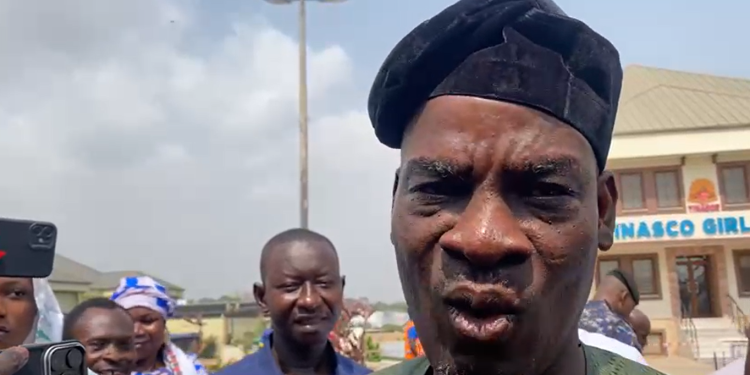Haruna Iddrisu, the Member of Parliament for Tamale South, has indicated that he plans to submit recommendations regarding the controversial LGBTQ Bill to President John Mahama.
While Iddrisu withheld specific details of the recommendations, he expressed confidence that his suggestions would reflect national interests and help shape the bill.

Speaking ahead of the National Muslim Prayer and Thanksgiving at the national mosque on Friday, January 10, 2025, Iddrisu said, “I have ideas regarding the LGBTQ issue, but I have not yet shared them with the president. I hope to offer suggestions on how he can take ownership of the bill, build national consensus, and ensure its alignment with Ghana’s laws and constitution.”
He added, “There is a way to address this issue. Discussing it here could reduce it to a religious matter, but the reality is that it is a broader social issue our country must collectively address and resolve.”
The controversial Human Sexual Rights and Family Values Bill aims to criminalise activities associated with lesbian, gay, bisexual, transgender, queer, and intersex (LGBTQI) advocacy. If passed into law, it would impose penalties on individuals promoting or funding LGBTQI-related activities, as well as those providing indirect support.
Proponents argue the bill is necessary to protect Ghanaian cultural and family values, which they claim are being undermined by foreign ideologies.
Conversely, critics, including human rights groups, condemn the bill as a violation of fundamental human rights, such as freedom of expression, association, and equality under the law.
However, the bill was challenged separately at the Supreme Court by broadcast journalist Richard Dela Sky and Dr Amanda Odoi, who both argued that the bill failed to meet the constitutional quorum requirements outlined in Articles 102 and 104 during the legislative process, rendering the bill’s passage unconstitutional.
The Supreme Court dismissed both petitions on the grounds that the bill had not yet become law. Justice Lovelace Johnson clarified that until a bill receives presidential assent, it does not constitute an enactment subject to judicial review of its constitutionality.
The decision underscores the court’s position that legislative processes cannot be challenged on constitutional grounds until they result in enforceable law.
























































![[FREE FREE MONEY] Predict and Win a Guaranteed GH¢200 From Us EVERY WEEK](https://wordpress.ghanatalksradio.com/wp-content/uploads/2022/02/Predict-and-Win-Final-09-03-2021-218x150.jpg)
![[Predict & Win – 8th/Oct.] WIN A Guaranteed ¢200 From Us This Week](https://wordpress.ghanatalksradio.com/wp-content/uploads/2021/10/maxresdefault-16-218x150.jpg)
![[Predict & Win – 2nd] WIN A Guaranteed ¢200 From Us This Week](https://wordpress.ghanatalksradio.com/wp-content/uploads/2021/09/maxresdefault-50-218x150.jpg)
![[Predict & Win – 25th] WIN A Guaranteed ¢200 From Us This Week](https://wordpress.ghanatalksradio.com/wp-content/uploads/2021/09/maxresdefault-36-218x150.jpg)
![[Predict & Win – 18th] WIN A Guaranteed ¢200 From Us This Week](https://wordpress.ghanatalksradio.com/wp-content/uploads/2021/09/maxresdefault-23-218x150.jpg)






![[National cathedral] See full list of churches that have contributed since 2018](https://wordpress.ghanatalksradio.com/wp-content/uploads/2020/09/Ghana-National-Cathedral-GhanaTalksRadio-100x70.jpg)



